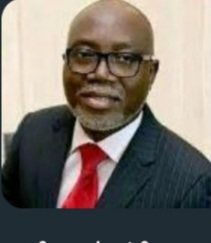I Knew Buhari Didn’t Understand Economics– Obasanjo
President Olusegun Obasanjo, who twice led Nigeria — first as military head of state (1976-1979) and later as an elected civilian president (1999-2007) — can claim to have seen it all. Born on March 5, 1937, the 86-year-old retired general has been a constant in Nigeria’s history in and out of office, offering comments — even if controversially — on political and economic issues. In this interview with TheCable, he gives his opinions of a wide range of issues.
TheCable: Increasingly, we are witnessing an era of military coups in Africa again. What do you think is going on?
Obasanjo: In 2021, when Col Mamady Doumbouya overthrew President Alpha Condé of Guinea, I recall that I travelled to Conakry. I spent two nights there. The coup leader didn’t want to meet with me because he didn’t know what I would say. They said he was out of town, which was not true. But I met every other important government official. I met his No 2 and his speaker. I listened to them and concluded that we had a new phenomenon on our hands. I realised that they had the support of the youths and were not thinking of staying in power for four, five years years. They are in for a generation.
When I noticed this, I went to Addis Ababa to meet the chairperson of the African Union Commission, Moussa Faki Mahamat. I told him that maybe he had not seen what I was seeing. That I saw this in Guinea Conakry. He said I was talking about Guinea Conakry, what about his own country, Chad? He said Burkina Faso, Mali, Guinea Conakry, and Chad were thinking the same way and they were connected. I said that was a new phenomenon in Africa. I said I was the one who in 1999 advocated that if you are not a government backed by the constitution, you should be suspended from the African Union, and these chaps don’t even mind any suspension. I told him that all the instruments we had used in the past would not work and asked what he would do about it. He told me about his challenges, especially with his country. So we have a situation where we have a continent where we have to rethink democracy. The liberal democracy we are copying from settled societies in the West won’t work for us.
TheCable: What type of democracy would work for us?
Obasanjo: I don’t know. But we have seen that the liberal type of democracy as practised in the West will not work for us. We have to put our heads together.
TheCable: Some would say it is working in Nigeria, that it has survived 24 years…
Obasanjo: I won’t answer you (laughs).
TheCable: But what can work?
Obasanjo: You have to put your heads together to fashion it out. You can give it any name. But we have seen that this is not working. Out of the six countries that have experienced coups, three of them are directly from elections. Burkina Faso, Guinea Conakry, and Gabon that we have just had are directly from elections. The other three are indirect, if you like.
TheCable: Would you say ECOWAS could have handled the Niger coup differently?
Obasanjo: What I said about the Niger is now what we did with Gabon, not a threat of force. Tinubu said “we are watching”. In Niger, ECOWAS has beaten the drum, and they have seen that it didn’t work. The point is this: where in Africa have the people benefited from the dividends of democracy? Tell me.
TheCable: Maybe Botswana…
Obasanjo: You don’t know the inside of Botswana. Ian Khama, the former president, cannot go to Botswana today. His father was the first president. I worked with him. As they were settling down, I thought they were making progress because the president after his father was the one who became minister of finance. When I was military head of state, he used to come and visit us, and we would render assistance to them, and he later became vice president and president. The next one was the same way. Ian Khama, who became the head of the army, moved the same way. The one that succeeded him now is chasing him from pillar to post. That is not liberal democracy.
TheCable: What of Ghana?
Obasanjo: (laughs)
Copy From The Cable.
















